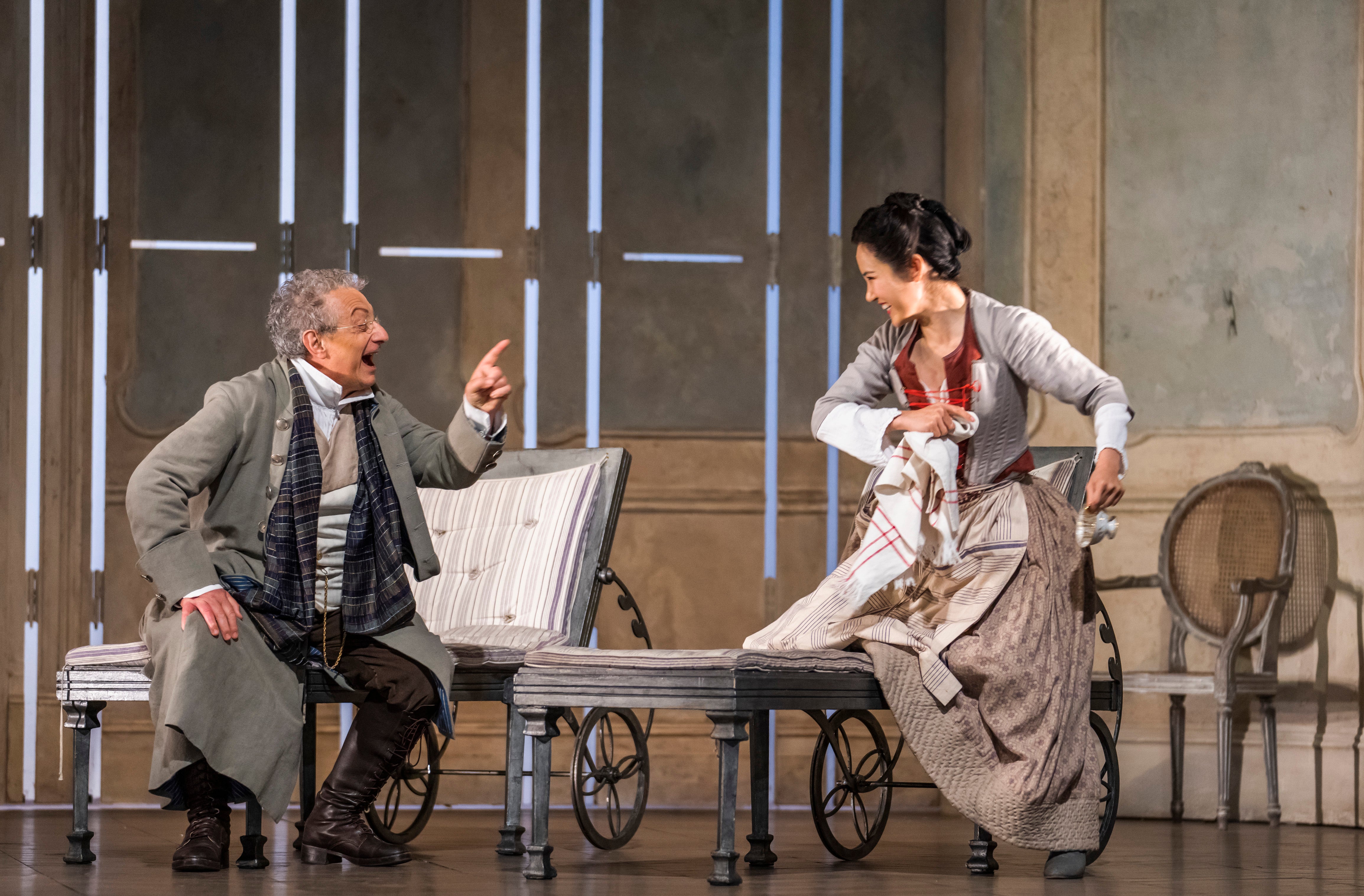Cosi fan tutte, Glyndebourne, review: Don Alfonso is oddly colourless in this blissfully restrained revival
Riccardo Minasi conducts the period-instrument Orchestra of the Age of Enlightenment with great sensitivity to mood and pace in Nicholas Hytner’s classic production of Mozart’s comic opera

What makes a classic production? Clarity and simplicity. And the longevity of Nicholas Hytner’s Glyndebourne production of Cosi fan tutte, which is still packing them in after fifteen years, is a perfect case in point. What glows most in the memory is the look of the thing, with Vicki Mortimer’s cleanly rectilinear marble set bathed in Paule Constable’s warm Mediterranean light, and with its suggestive vista of a blue sea-and-sky distance.
But what strikes me each time I see it is the restraint in the direction; the blissful lack of look-at-me busyness that often mars the work of young directors trying to make their mark. This time round, under Simon Iorio’s revival direction, there is even more restraint than usual, thanks to the need for social distancing. But only at one point: when Don Alfonso mimes an invitation to dance with his hand hovering six inches over the hand of the character he is leading across the stage it does seem a mite awkward.
There is one unexpected weak link in the line-up, in the form of Alessandro Corbelli in the part of Don Alfonso. This fine Italian farceur is normally the focal point of any show, but here his characterisation is understated and oddly colourless. He simply hasn’t found the key to the character. I longed for the commanding brilliance that Thomas Allen brought to this part at Covent Garden in 2019, as he genially pulled the strings on which the hapless young lovers are forced to dance.
On the other hand, Hera Hyesang Park, incarnating the mischievous maid Despina, is the most electrifying presence on stage, with her cameo moments as a doctor and a notary effortlessly stealing the show. Her comic timing is impeccable, her singing a delight.
The four protagonists each have their USP. Konu Kim’s Ferrando may not be especially beautifully sung, but his tenor has warmth and immediacy, particularly when he’s dying from jilted jealousy; Huw Montague Rendall’s sonorous baritone makes a fine complement, and the pair clown and attitudinise with convincing gusto.
Julie Boulianne’s Dorabella exudes the right kind of sly sexual opportunism, while Ida Falk Winland’s Fiordiligi uses the edge on her voice as a lethal weapon in the sex war, and her big solos are magnificently sung; she finds the emotional power to express all the pain at the heart of this mysterious, subtle, and insidiously cruel work. Riccardo Minasi conducts the period-instrument Orchestra of the Age of Enlightenment with great sensitivity to mood, pace, and colouring.
Until August 27



Join our commenting forum
Join thought-provoking conversations, follow other Independent readers and see their replies
Comments